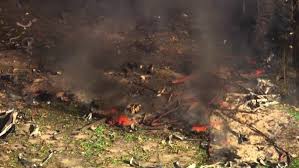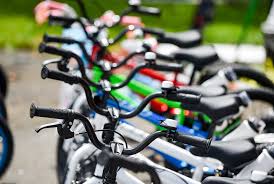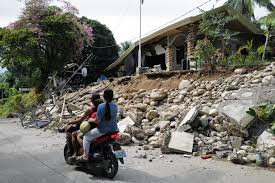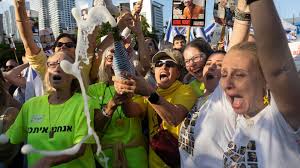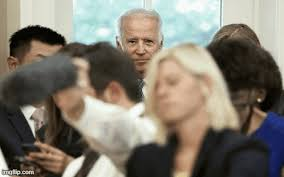Families of the unclaimed bodies were left in the dark about the usage of their loved ones ’ corpses for research purposes for the Health & Science Center. NBC News found repeated failures by death investigators in both the Dallas and Tarrant counties to make an actual effort into finding the families of the bodies. They also failed to contact family members who were reachable before declaring a body unclaimed and using it for research. This decision is one of many mistakes that have affected several families from across the Texas counties. The NBC reporters examined dozens of cases and identified at least 12 of those cases in which families learned weeks, months, or even years later that a relative had been provided to the medical school’s research, leaving many survivors angry and shattered. Five of those families found out what happened Through the NBC News. One of the family members of a body named Fran Moore had cried as one of the reporters informed her that her father, Carl Yenner, had died in Dallas more than two years earlier and was sent to the Health & Science Center. She had said, “If you could find us, why didn’t they?”. Another case was of Victor Honey, a homeless and mentally ill Army veteran whose unclaimed body was cut up and leased out to groups across the country, it had taken a year and a half for family members to discover what happened, and they found out the full details only after being contacted by NBC News. Brenda Cloud, one of the Honey sisters had this to say about the situation “It’s like a hole in your soul that can never be filled, We feel violated.” It is truly heartbreaking that they were only Two of the many, many families misled and manipulated for years on end until the truth came to light in this investigation, But what seems to add insult to injury to this heartbreaking case is that when the informed families tried to reclaim the bodies of their love ones the Health & Science Center refused telling them they needed to wait months or years until they were done using the families loved ones bodies for their research.
Secondly, Economics played a big part in the usage of the bodies in North Texas. Local medical examiners and coroners nationwide bear the considerable costs of burying or cremating tens of thousands of unclaimed bodies each year. Disproportionately Black, male, mentally ill, and homeless, these are individuals whose family members often cannot be easily reached, or whose relatives cannot or will not pay for cremation or burial. By sending these bodies to the Health Science Center, Dallas, and Tarrant counties each saved a half-million dollars a year on burial and cremation. In return, the center got a free supply of what one program official called “valuable material” needed to educate future doctors. The center used some of these bodies to teach medical students. Others were parceled out to medical training and technology companies, including a few industry giants, that rely on human remains to develop products and teach doctors how to use them. The supply of unclaimed dead helped bring in about $2.5 million a year from outside groups, according to Health Science Center financial records.
Next, The recipients that paid the Health & Science Center for the bodies had not been informed that the bodies were unclaimed. Ten companies, teaching hospitals, and medical schools that relied on the Health Science Center for human specimens told NBC News they didn’t know the center had given them unclaimed bodies. Some, including the U.S. Army, promised to review internal policies in response along with DePuy Synthes, which is owned by Johnson & Johnson, said it was pausing its relationship with the center after learning that it received body parts from four unclaimed people. Boston Scientific, whose company Relievant Medsystems used the torsos of more than two dozen unclaimed bodies are also doing the same by rethinking their association with the center. Some of the recipients like the University of Arkansas for Medical Sciences had been under the assumption that all of these bodies had been voluntarily willed to medical science because the University of North Texas office that provided specimens is called the Willed Body Program. Another case of this was with Dr. Douglas Hampers, the CEO of National Bioskills Laboratories who had leased Honey’s torso to one of the unclaimed bodies mentioned previously and the CEO had stated that he was disturbed to learn his company had received unclaimed bodies. He said his company would ensure that it no longer accepted unclaimed bodies and would adopt policies to make certain future specimens were donated with families’ permission and had quoted “I don’t think you have to violate a family’s rights in order to train physicians.”
Next, Why studying unclaimed bodies violates modern ethical guidelines. The use of unclaimed bodies ties back to dark history, long before voluntary body-donation programs when U.S. medical schools turned to “resurrectionists,” or “body snatchers,” who dug up the graves of poor and formerly enslaved people. The American Association for Anatomy released guidelines for human body donation last year stating that “programs should not accept unclaimed or unidentified individuals into their programs as a matter of justice.” In the absence of federal data on the use of unclaimed bodies, NBC News surveyed more than 50 major U.S. medical schools. Each of the 44 that answered said they don’t use unclaimed bodies — and some condemned doing so. Thomas Champney, an anatomy professor at the University of Miami Miller School of Medicine who researches the ethical use of human bodies, had stated “Since these individuals did not consent, they should not be used in any form or fashion,”
Finally, NBC’s news investigations sparked immediate and significant changes. For months as NBC News investigated, Health Science Center officials defended their practices, arguing that using unclaimed bodies was essential for training future doctors. But on Friday, after reporters shared their detailed findings, the center announced it was immediately suspending its body donation program and firing the officials who led it. The center said it was also hiring a consulting firm to investigate the program’s operations, noting that NBC News had uncovered its “failures” to live up to “the standards of respect, care and professionalism that we demand.” Before the Health Science Center announced it was suspending the program, officials in Dallas and Tarrant counties said they were reconsidering their agreements to send unclaimed bodies to the center in light of the reporters’ findings. Dallas County commissioners recently postponed a vote on whether to extend their contract. The top elected official in Tarrant County, Judge Tim O’Hare, said he planned to explore legal options “to end any immoral, unethical, and irresponsible practices stemming from this program.” “No individual’s remains should be used for medical research, nor sold for profit, without their pre-death consent, or the consent of their next of kin,” O’Hare’s office said.

